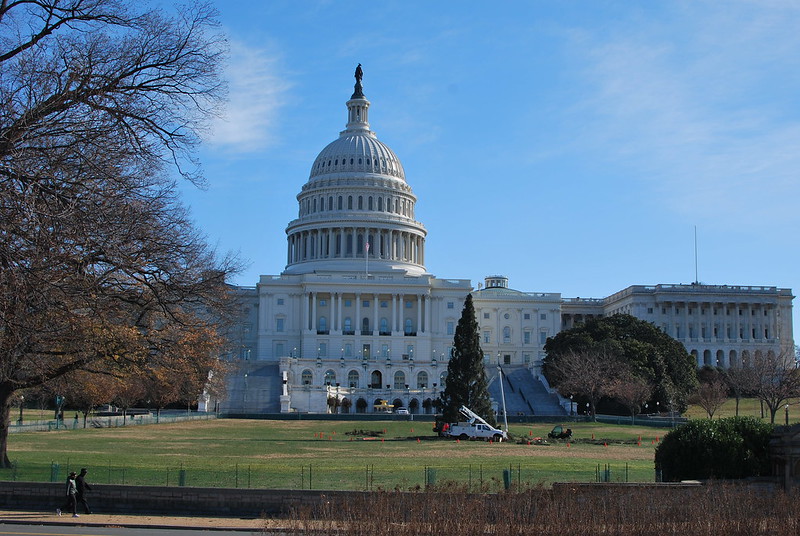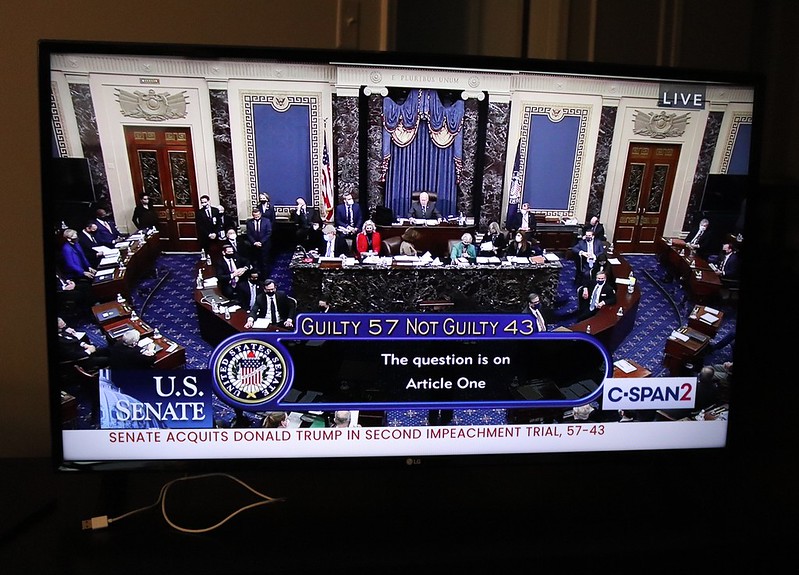
Former President Donald Trump’s second impeachment trial ended Feb. 13, with 57 votes in favor and 43 against.
The final count, 10 votes short of attaining the two-thirds majority needed for impeachment, acquitted Trump. Seven Republicans voted the former president guilty of “incitement of insurrection,” the most bipartisan amount in favor of conviction in history, according to the Washington Post.
“I do not think that just because someone is affiliated with a certain party should mean they have a predetermined vote. However, there was a trend in that each of those seven are not up for election next year with an exception of one. I would assume that factor played into their decision process,” junior Marley Parks, Young Democrats Co-President, said.
With senators still displeased about the Capitol riots that took place on Jan. 6, tensions remained high in the room throughout the trial.
“Although Trump himself might not have taken part in the scheming of the Capitol storming, I do believe that Trump’s allies helped promote rallies that led to this event,” Parks said. “Everyone is entitled to their individual opinion, as this is a free country so I do think each side could have supported arguments. However, I do think that Trump’s opposers had more evidence to back up their reasoning in the trial. His defense aimed at solely targeting the Democrats.”
The trial lasted five days because Trump’s supporters in the Senate pledged allegiance and both parties agreed to end the proceeding. Florida senators Marco Rubio and Rick Scott were among the 43 Republicans that acquitted Trump.
“I believe that the seven Republicans that voted Trump guilty should have stayed with the party that they are representing,” freshman Mitchell Ruiz, member of the Young Republicans club, said. “Both sides had a solid case and that in the end, it was a vote on what their opinions of the president were.”
House managers demanded witness statements that testified to Trump’s actions and discussions throughout the attack. The Senate agreed to the witness statements, however, the trial would continue for weeks. As a result, the prosecution decided the statements were not going to make a wide enough impact.
“I don’t believe having witnesses would have changed the outcome, the majority of the senate at that point in time had most likely decided their vote and was firm in it,” Parks said.
As a result of his acquittal, Trump can still run for president in 2024.
